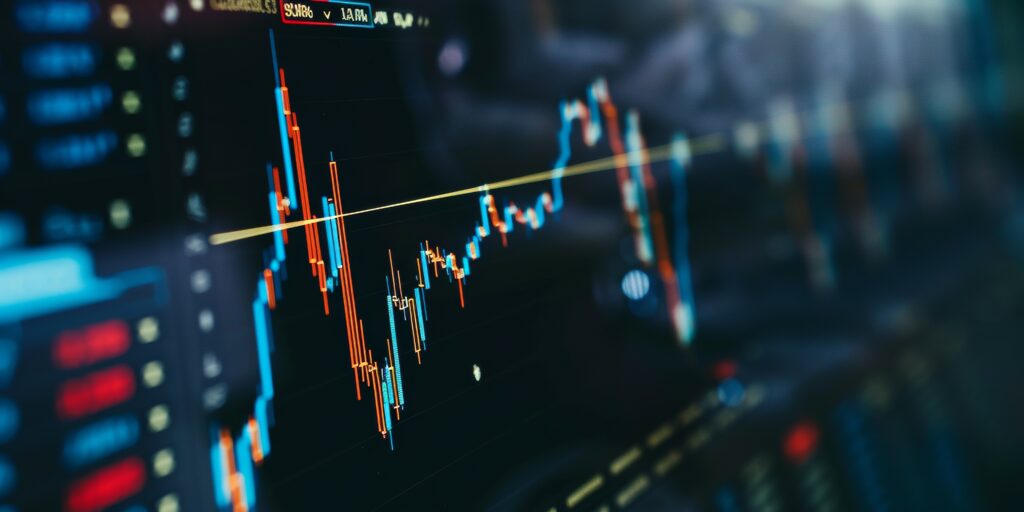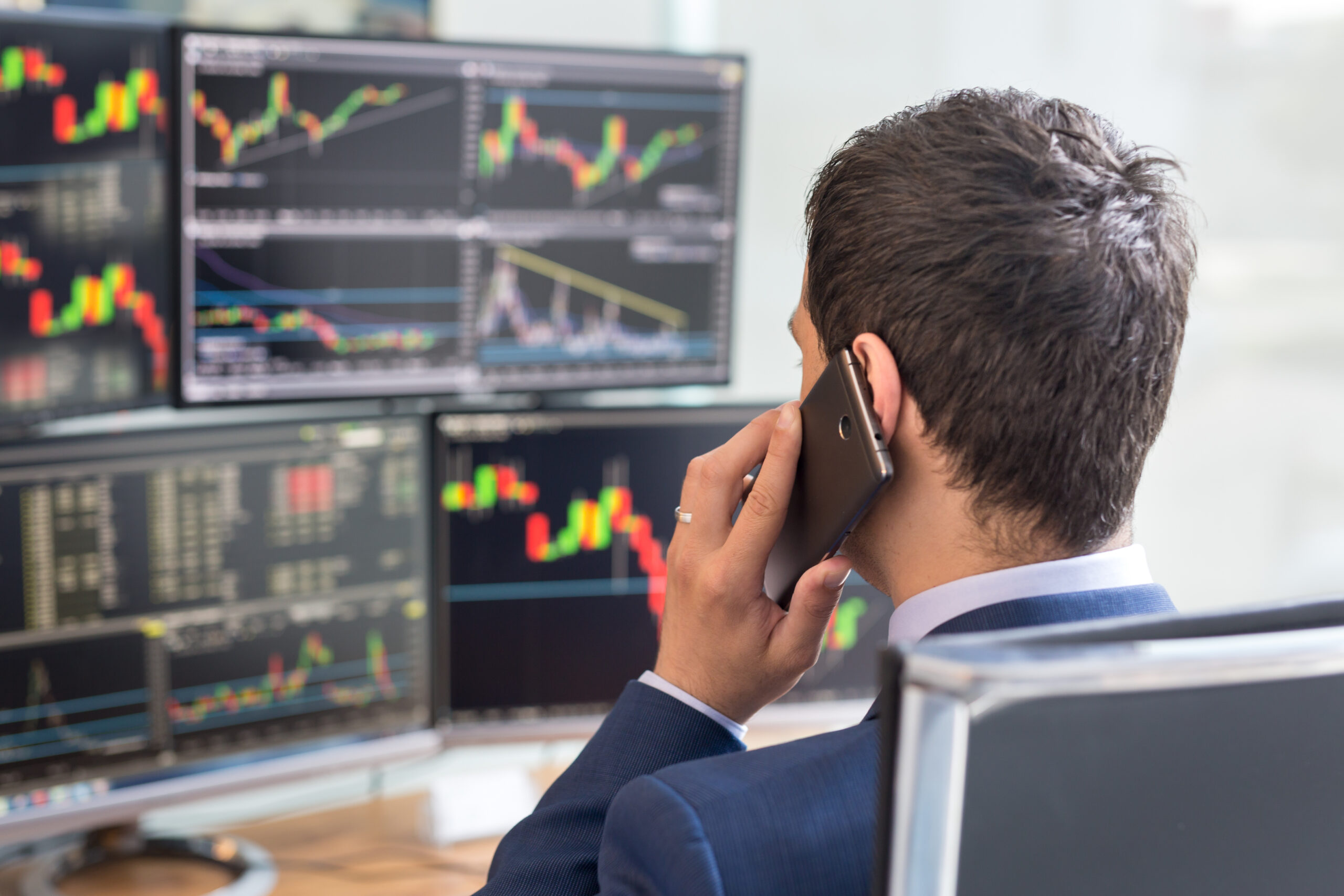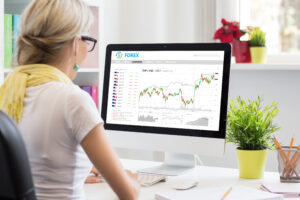Everyone has heard of the Stock (Equities) Markets. Why is Forex such a mystery? What is Forex Trading?
Did you know that the global equities markets, trade a whopping $95 Billion EACH and EVERY DAY??? Can you imagine? You buy 100 Facebook Shares (currently around $200 per share) and you have to send your stock broker $20,000. That’s a pretty chunky cheque for your investment. Around the world EACH DAY there is an equivalent of nearly FIVE million like-for-like transactions like this – all for $20,000 of shares – and that’s EVERY DAY!
Now imagine a market 70 Times BIGGER! And you have the Forex Market.
The latest Triennial Central Bank Survey of FX and OTC Derivatives Markets Activity report was released by the BIS in April 2023. This showed Average Daily Forex Volumes totaled $7.20 trillion in 2022– and that is every day! Now that’s crazy, right?
And yet, so many of us still ask, What is Forex? How does Forex work? Where is the Forex market located?
Well in today’s blog, I will unravel all the dark mysticism that surrounds the Forex market and answer all those questions.

So, What is Forex?
Forex, short for Foreign Exchange (although not as short as FX – which is what it used to be known as) is simply the means for how much can one currency ( the British Pound or the US Dollar, for example) can be exchanged for another (the Euro, Swiss Franc, Yen or Chinese Yuan, again for example).
So let us assume if you were traveling from your home country (the UK, perhaps) to the United States of America. You would obviously have British Pounds in your wallet. Clearly, when you get to the US of A you will need ‘local’ cash. For Taxi’s from the Airport, for your hotel and for shops, restaurants and who knows – maybe a bar or two?
Well, needless to say, trying to pay for anything with a £5, £10 or £20 note is not going to get you too far. So (and I apologise if I am being too simplistic) when we travel to another country we need to exchange our British Pounds for the US$. This will enable us to buy goods and services locally in local currency.
In essence, we SELL our British Pounds and we BUY US$. If we traveled from the UK to mainland Europe – where most countries use the Euro as a means of exchange – we would SELL our British Pounds and BUY the Euro. And so on. Selling one currency and buying another. This is Foreign Exchange. Or Forex as it is more commonly referred to.
What Determines the Exchange Rate I get in Forex?
So, how many US$ will I get for my GBP? Well, that can vary from one day to the next – indeed one moment to the next – as the Forex Market is a dynamic 24 hour a day market. It is constantly moving – and I mean constantly.
Let’s take a quick snapshot of where the Forex market is today, and look at the exchange rate of a basket of currencies which are most commonly traded:
The table above shows the current exchange rate for all the 7 major Forex pairs. That’s those that are most commonly traded and feature the major economies of the world at least. Most are easily recognizable for clarity but for future reference note the following:
As you can see, the Exchange Rate for the GBP against the US$ (GBP/USD) is 1.30814 (on the ‘offer’ side)
That means for every GBP1 you will receive $ 1 and 30.814 cents or $130.814 per every GBP 100 you exchange
If you were Exchanging 1 Euro (EUR) and buying GBP, the Exchange rate is 0.85282 pence. In other words, you will get 85.282 pence for every Euro you Sell – or GBP 87 per EUR 100.
Of course, in reality, when you go to the Bank or the Money Exchange Office at the Airport you tend to get a less competitive rate than this – they charge whats called a ‘spread’ and sometimes a commission as well.
What do we mean by the ‘Bid & Offer’?
All currency prices are quoted, by banks or Exchange Offices, as a two- ways price. They give the price THEY (the bank) will BUY off you at (know as the BID) and a price they will SELL to you (known as the OFFER). It will look like this:
BID OFFER
GBP/USD 1.2540 1.3860
This means the Bank/Exchange Office is willing buy GBP1 OFF you in Exchange for USD1.2540 (in other words they will buy GBP100 off you and give you USD 125.40cents in Exchange.
On the other side, they are will to give you GBP100 for every USD138.60 you give them.
This suggests a mid-price of 1.32, which as we discussed is today’s price – and the difference between where you can sell and buy the US$ is called the SPREAD. The SPREAD is how the Bank/Exchange office makes money – in this case, it a 10% spread – the difference from 1.2540 and 1.3860 being 13.2cents or 10% of the id-price of 1.32.
This example, with a 10% spread, is an illustration of how much a tourist may have to pay (in spread) to exchange a few hundred # or $. We strongly urge you to also check out my article Should I Exchange my Currency in my home country or at my destination? This gives a comprehensive guide to the best way to avoid excessive charges and get the best value exchange rate.
So I understand Tourist rates, but…
Who Trades the Forex Markets?
Governments and Treasury
The biggest ‘players’ or perhaps we should say ‘participants’ in the Forex Markets are the Governments and respective Treasury departments. Countries have huge Forex exposures, incomes and expenditures and as such need to be active on a daily basis. One country invests in other countries Sovereign Debts (Bonds & Gilts) which is a way a Government or Country gets incoming investment. By issuing a Bond or Gilt (in the UK) they are borrowing money. Like any loan, interest is earned and paid and if that is in a Foreign Currency the Forex markets are a means of funding that.
Governments/Countries also import and export and again that will demand Forex transactions. They may also use the markets to support (strengthen) their Currency by Buying in order to stop the Currency’s valuation dropping. (Rarely successful, by the way!!). They may even, in some instances, SELL their own Currency so as to ‘weaken’ it. This may be when the currency is deemed to be ‘over-valued’ and is making that Country’s produce (for Export) very expensive and as such uncompetitive.
Commercial Companies
Now you understand what a BID and OFFER is you will understand how the Forex Market as a whole work. But who Trades Forex? The foundation of the Forex market and why it exists in the first place are Importers and Exporters or what we might summarize as Commercial Companies
According to the resource worldstopexports.com, the UK imported about $60 billion worth of goods and services from the US in each of the last 3 years.
Transaction Example
So at some stage a company in the UK, let us call them <” IMP UK ”>, on importing $1billion worth of goods from a ‘Manufacturer’ in the USA, henceforth called <” MAN USA ”>, will need to BUY US$ and SELL # to settle the cost of those goods. They clearly wouldn’t do that in one transaction but may do this incrementally throughout the year as and when those invoices were due.
In doing this IMP UK would go through one of the major banks who would give them a quote, a bit like the Exchange Office. However, given the transaction size at a significantly more competitive SPREAD. Indeed, the IMP UK may well go to a number of banks to get the most competitive price or use a BROKER. A broker can aggregate ALL the Bids and Offers from the various Banks and offer the BEST EXECUTION price for that particular moment.
So IMP UK has agreed to Buy $100m of HSBC at an average rate of 1.3220. This is referred to as the SPOT price, in other words for Immediate Settlement. In reality, the Forex Market has a T + 2 Settlement process, which is Transaction (T) + 2 working days to complete (known as the Value date).
Let us assume this transaction is executed on December 11th, 2019. This would give a T+2 ‘Value’ date of December 13th – and on that day, IMP UK will transfer the GBP75, 643,000 to HSBC. HSBC in return will transfer the US$ 100,000 to IMP UK’s US$ account and IMP UK will now Transfer the $100m to EXP USA. Thereby satisfying the value of the invoice raised for the goods sold.
Banks and Brokerages
Now Imagine all of the Commercial Companies who are Importing and Exporting to not ONLY the USA but around the world EACH day and you can understand why the market is so big. In addition to the Commercial Companies – doing actual physical and deliverable exchanges of currency – the market is dominated by Banks and Brokers who are making the two-way PRICES ( known as Market Makers) and Hedge Funds and Investment Banks who like Commercial Companies need to Buy Foreign Currency to But Stocks and Bonds and fund other transactions in other countries.
Just buying the major Commodities like Gold and Crude Oil (both priced n US$) means that investors and traders need to be buying US$ if they are not holding US$ – to buy either of those commodities.
How do Banks make their money?
So given the Banks and Brokers make their money on the Spread they want to attract both the BUYER and the SELLER to transact at their BID/OFFER price. How do they make money
Customer A wants to sell £ 1m and does this at 1.3210 – The BANK is the BUYER at 1.3210
Customer B wants to buy £ 1m and does this at 1.3220 – The BANK is the SELLER at 1.3220
The Bank Sells £ 1m for $1,322,000 to Customer B and receives $1,322,000 and pays away #1m
The Bank Buys £1m at a cost of $1,321,000 off Customer A, receives #1m and pays away $1,321,000
The profit and loss (P&L) is:
Bank Receives USD1,322,000 and Pays USD 1,321,000 PROFIT $1,000
Bank Pays GBP1,000,000 and Receives £ 1,000,000 PROFIT 0.00
So for every GBP1m transaction, a Bank could make $1,000 at these prices.
Market Spreads
Nowadays, prices are so competitive and liquidity so high, the spread has got tighter and tighter (closer together). Remember the Table earlier in our article and see how ‘tight’ the actual market spreads are. This has made transaction costs cheaper which have just resulted in higher volumes being transacted and trading strategies becoming more active and higher in frequency.
A typical FX quote, in normal market conditions for GBP/USD is 1.32100/1.32105 or half a pip. This equates to just a $50 profit for the bank/$1m matched – but then if they are doing volume (a high number of transactions) the $50 per trade is a nice profit!
What Affects the ‘Spread’?
The ‘spread’ for any currency depends on a number of things, namely:
Liquidity – the amount that currency is traded on a daily basis and the number of market participants making prices (bids and offers) in that market.
Volatility – the amount the price of any given currency price may be changing on a daily, even hourly basis. The higher the volatility, the higher the cost a bank will charge to buy sell – as the more volatility there is the more RISK the bank takes in buying or selling to you. Very much like Insurance Premiums are more expensive depending in how Volatile the environment may be that the policy covers. High Volatility – High Premium.
Other Participants
The FOREX Markets are highly active due to the transactions generated by Trade. Add to this the other Financial Institution’s like Pension Funds, Investment Managers and Investment Banks. All need Foreign Currency to by Bonds and Stocks and other instruments and the demand to buy and sell different currency pairs is enormous. This ‘liquidity’ and subsequent price movement provides ‘speculators’, both individuals and institutional (like Hedge Funds), a huge opportunity. By predicting said movements in advance they can profit. All of these transactions add to the liquidity and huge volumes that trade on a daily basis in the Forex market.
Our article ‘Daily Forex Trading Volumes – By Product. A Beginners Guide’ outlines how different products in the Forex market help both Commercial users and Investors alike to manage risk and profit from Forex price movements on a daily basis.
If you would like to know more about the Forex market and how Speculators try to profit trading them, read our article Speculating in Forex – A Beginners Guide to Forex Trading. Outlining all the dangers and Pitfalls of trying to make money trading the markets, and all the tools you need to make it Profitable!




